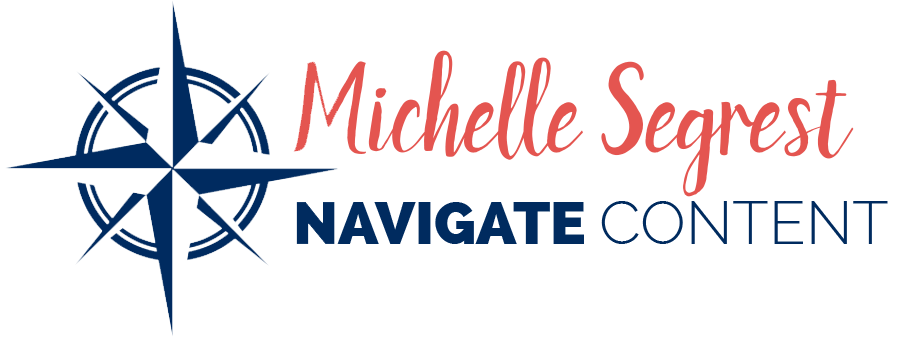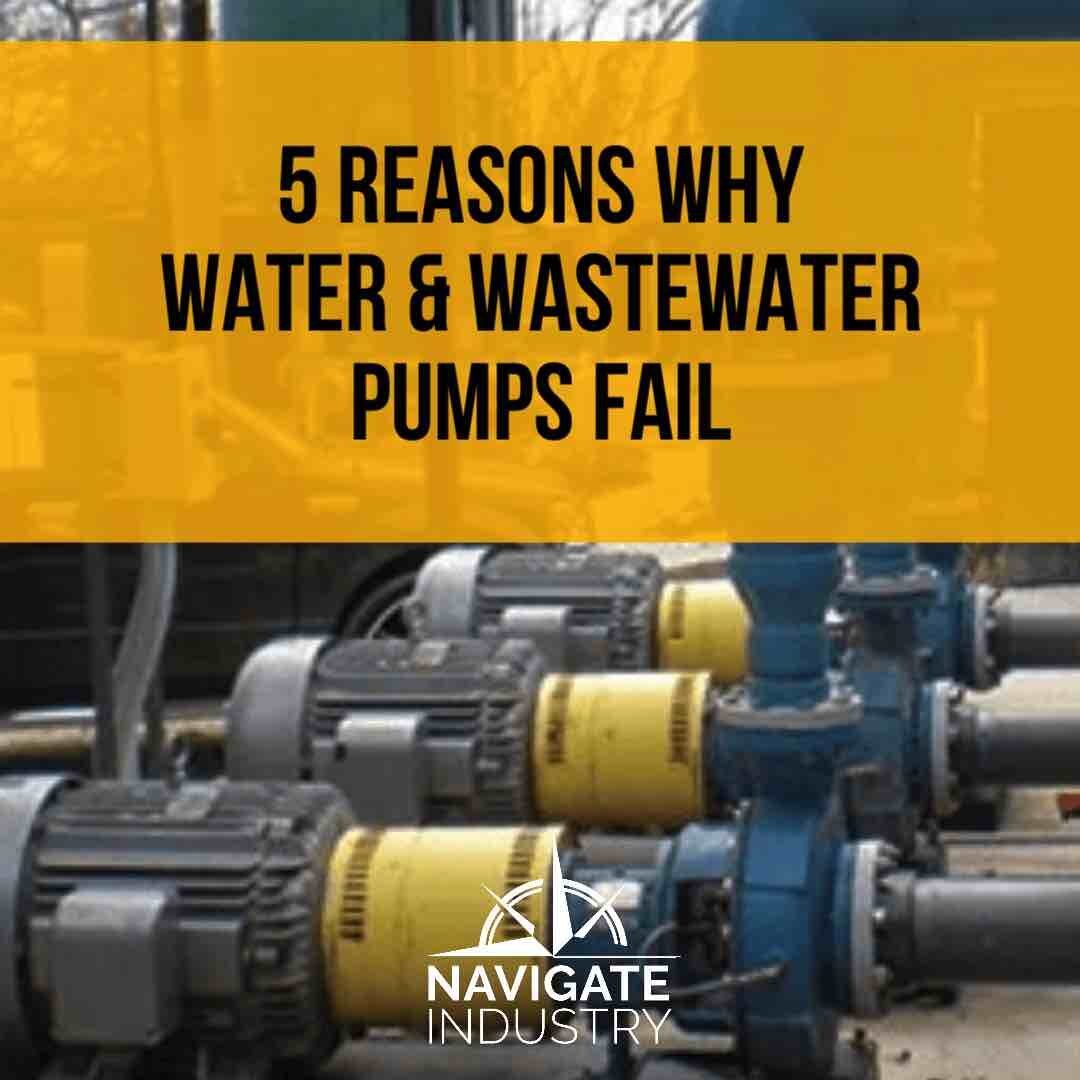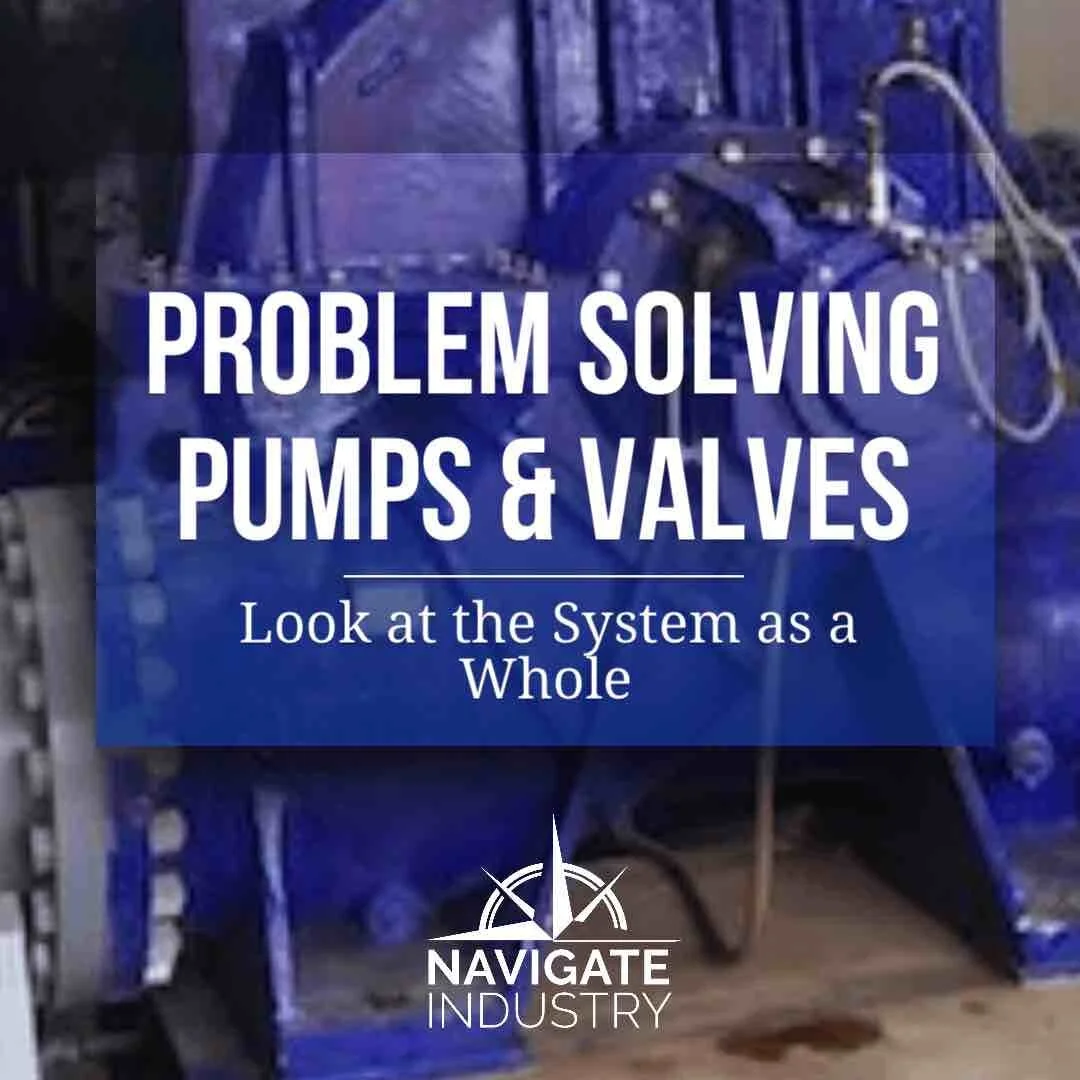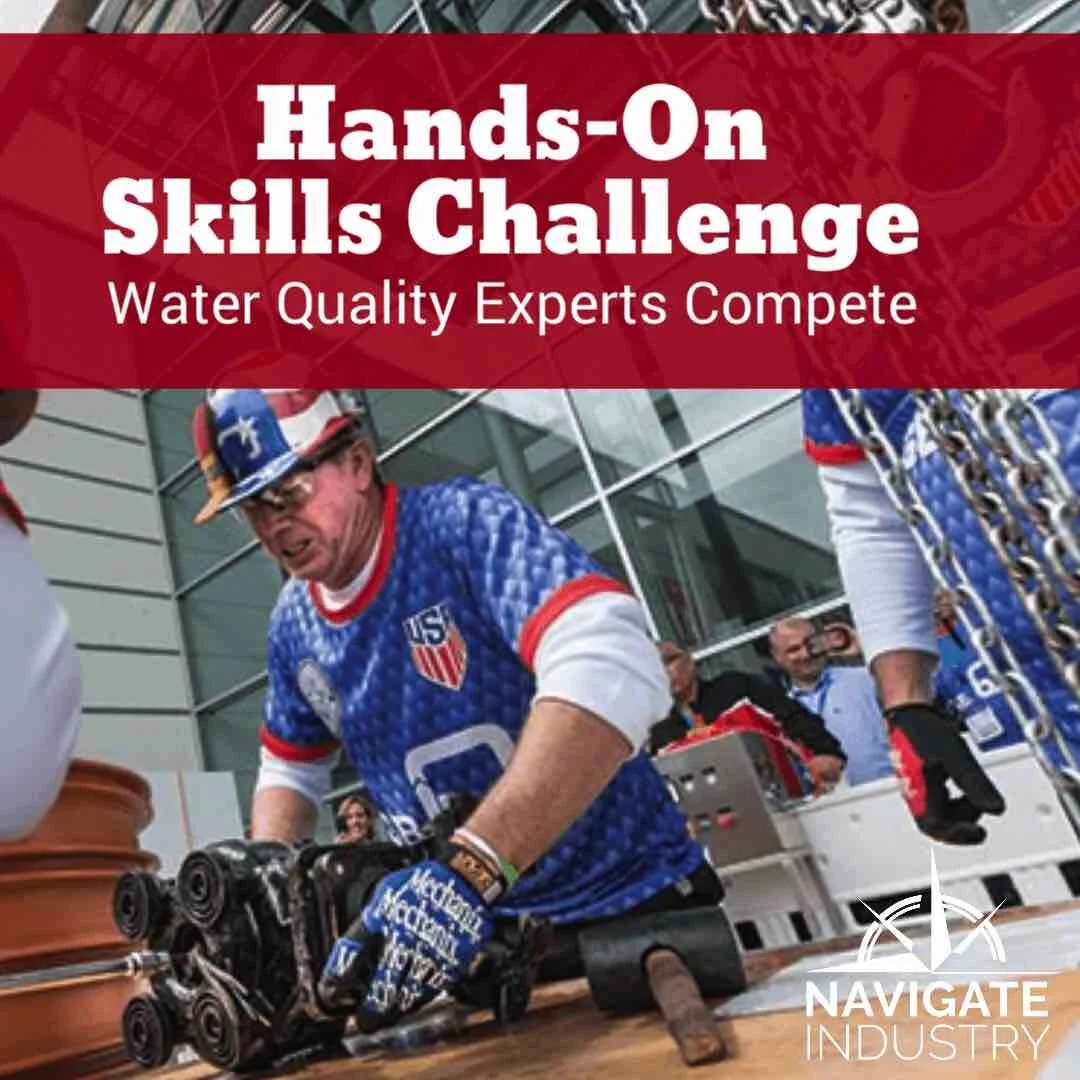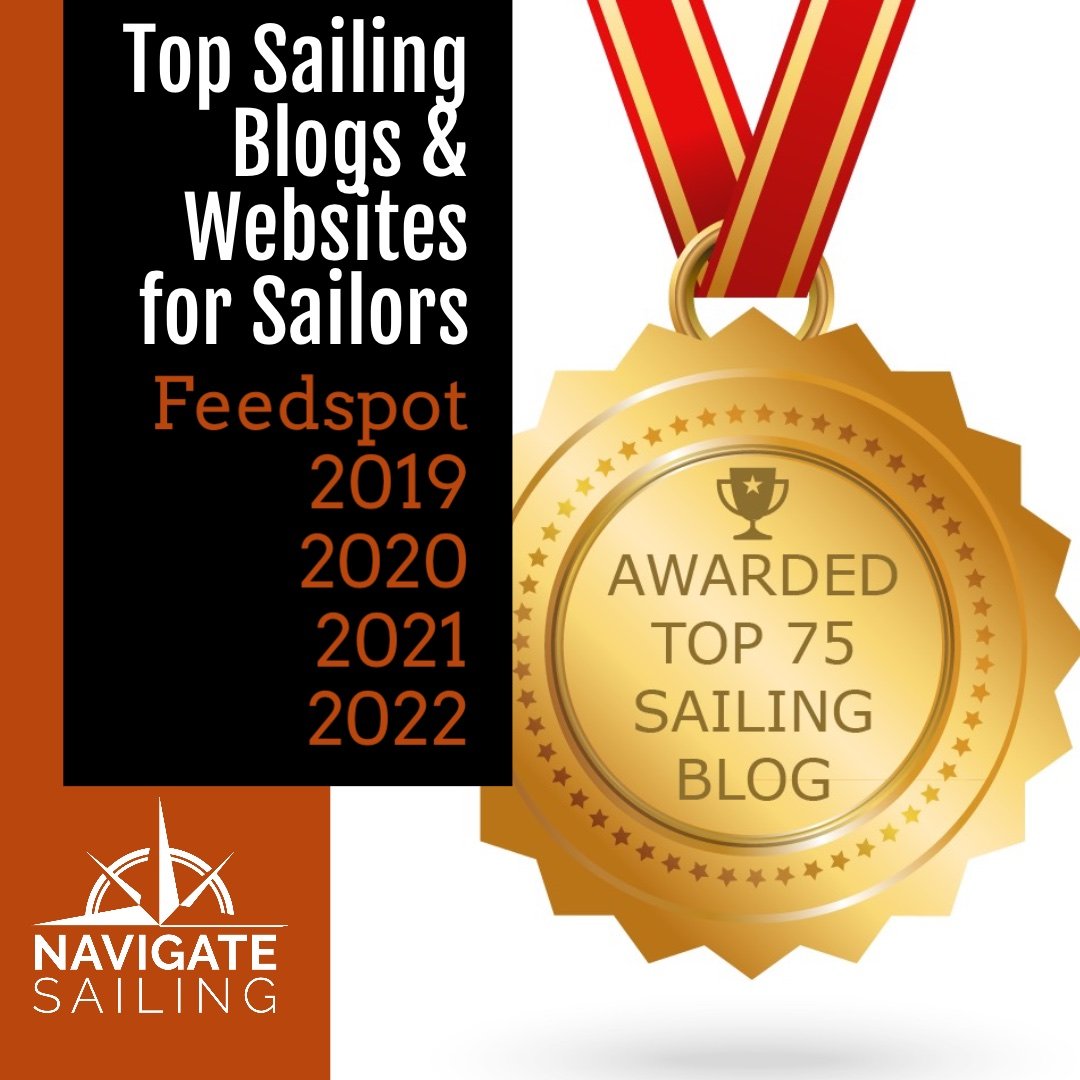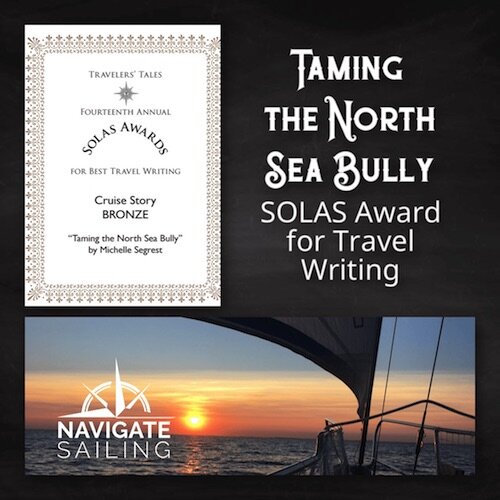Water Quality Operators Compete in Annual Hands-On Skills Challenge
/Water quality operators are challenged and celebrated in an annual hands-on skills competition, as the all-star USA team won Gold in the IFAT international Operations Challenge in Munich, Germany in 2016. WEF and its global network of members and member associations provide water quality professionals around the world with the latest in water quality education, training, and business opportunities.
By Michelle Segrest, Navigate Content — Reporting for Maintenance Technology Magazine
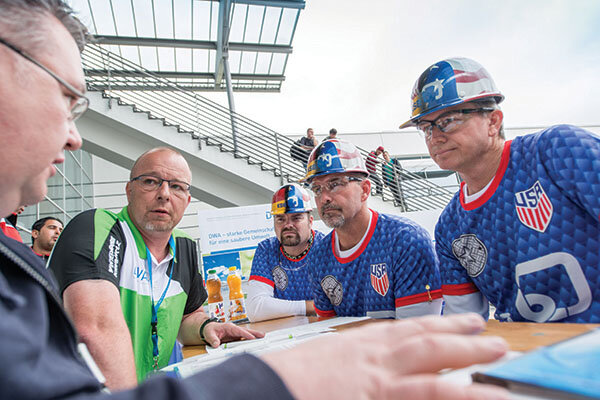
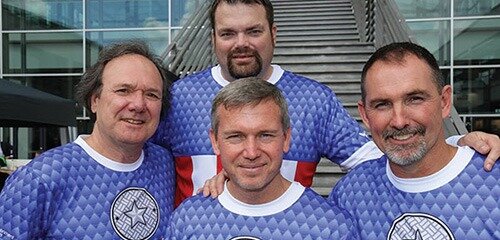

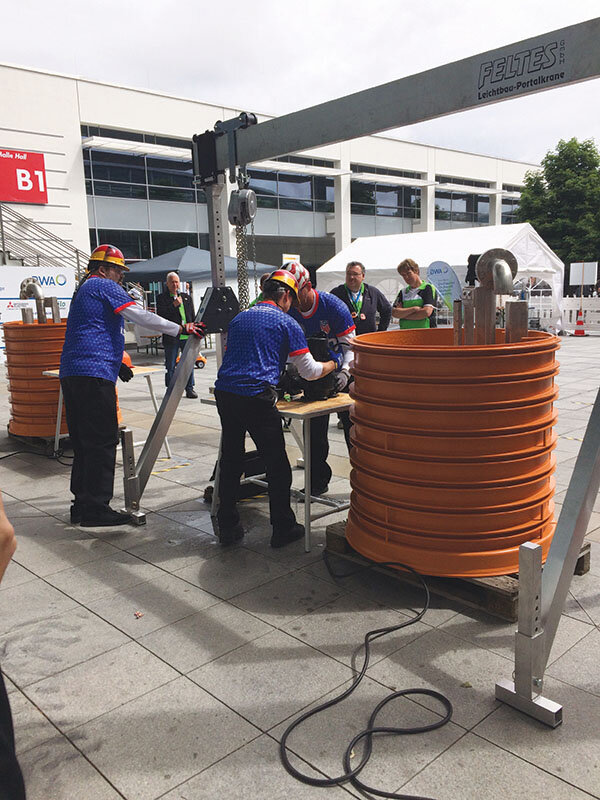
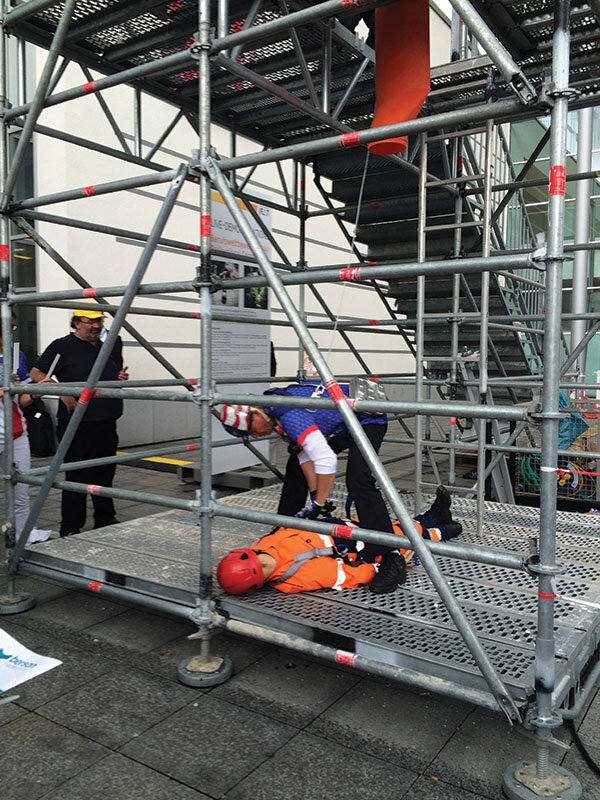
Attend any WEFTEC trade show and look for the most popular event on the floor. It’s not difficult to find. It’s also the loudest. Listen for tools clanking, wrenches cranking, and hundreds of amazed spectators cheering on their favorite team of real-world operators doing what they do best.
The skills of plant operators are crucial, but they often are not visible. The annual WEFTEC Operations Challenge celebrates the contributions of the talented hands-on personnel with a unique professional skills competition.
One of the marquee events at the annual Water Environment Federation Technical Exhibition and Conference (WEFTEC), teams are evaluated in five activities that demonstrate the span of skills necessary for contemporary water quality professionals to effectively deliver clean water and sanitation services to their communities. The event exposes participants to emerging practices and products in a competitive, educational, and social atmosphere.
“Water quality operators often end up in the industry unintentionally,” explained WEF senior manager, Operator Programs, Steve Harrison. “While they may be proficient at their assigned tasks, they may not always realize the bigger picture in which they play a role. Competing in the Operations Challenge enables those that typically would not be able to attend WEFTEC the opportunity to go to the largest water quality event in the world. It is there they are often exposed for the first time to the breadth of the water quality industry, their vital role in it, and the virtually limitless opportunities for a rewarding career.”
WEF Provides Water Quality Education, Training & Business Opportunities
WEF and its global network of members and member associations provide water quality professionals around the world with the latest in water quality education, training, and business opportunities. The organization’s diverse membership includes scientists, engineers, regulators, academics, utility managers, and other professionals. It uses this collective knowledge to further a shared goal of improved water quality around the world.
WEF assembled a team of Operations Challenge all-stars to represent the United States in an international competition during IFAT in Munich, Germany in May 2016. Global pump company KSB Inc., Richmond, VA, sponsored the team that won the gold medal, despite the extreme challenges of language translation, international safety and regulation differences, and metric/imperial math conversions.
Dave Vogel, a mainstay in the WEF competition since its inception in 1988, coached three highly decorated challenge winners (Dale Burrow, Donnie Cagle, and Steve Motley) from different states, backgrounds, and disciplines to form the winning USA team.
“We are extremely pleased with results and the overall experience,” Vogel said. “What is most significant to us is what we have learned, the friends we have made, and how all of the participants, along with all operators around the world, will continue to perform this important work every day in their own communities.”
The Complex Job of the Water Quality Professional
As the water quality industry moves beyond mere pollution mitigation toward an increasing focus on comprehensive resource recovery, the job of the water quality professional has become more complex.
The WEF Operations Challenge provides a venue that cultivates leadership qualities for a group that may lack access to more traditional networking and professional-development opportunities, and it engages this audience effectively. As the industry’s premier skills competition, the Operations Challenge delivers cross training, team building, and professional development.
“Few people understand the magnitude and complexity of the effort required to constantly and safely provide clean water and sanitation services,” Harrison said. “But the lack of these services would have profound consequences for public health and our quality of life. There is no greater disparity in the importance of one’s job and the prestige of one’s job as there is for water-quality operators. While immense, the industry is decentralized and operators do not routinely have an opportunity to connect with their peers. But they all share the same important mission. Their resulting collaboration, facilitated by participating in the Operations Challenge, enhances the delivery of these vital services to all of their communities when they return home.”
Participation has doubled since the event’s 1988 debut, and it continues to engender passionate loyalty among competitors and volunteers. Some have been involved for more than 20 years.
The Highly Interactive WEFTEC Operations Challenge
The logistically complex event requires more than 100 volunteers on site, and hundreds more to support the qualifying competitions held throughout the country prior to WEFTEC. The program is highly interactive and provides continuous cooperation with members as the competition protocols are constantly reviewed and updated to reflect current practices. One of the five events is revised each year to make the competition dynamic and to expose teams to new concepts, products, and procedures.
“Operations Challenge fosters the evolution of public-works employees into stewards of the earth’s most essential natural resource,” Harrison said. “This exceptional event has been emulated by associations in other countries, accomplishing one of the organization’s critical objectives of enriching the expertise of global water professionals. There are now skills competitions in South America and Europe, and in 2015 two teams from Germany competed in Chicago at WEFTEC for the first time. This type of cross-cultural, peer-to-peer mentoring of operations personnel is invaluable to the industry.”
Team USA members have competed with and against each other for many years. The German event, however, marked the first time the four individuals joined to form a team.
The lessons learned during the challenges often reflect real-life scenarios.
“It wasn’t my invention or my brain child. Skills competitions for occupations aren’t anything new,” Cagle said. “You have the skilled competitions for the lumberjacks, and the firefighter challenge. WEF was able to dissect our occupation and determine some critical components of wastewater treatment. One is definitely process control–if it doesn’t work then we must fix it and make sure that it is right so that you get quality for the water you are discharging into the lakes or rivers or streams or what you are spraying on a field. You determine this through laboratory houses, so that is another critical component. The collection systems get the wastewater to the plants. How do you keep the plant properly operating? That is maintenance. What are the critical components of your operational or maintenance staff, and how do you keep them safe? That is safety. The Operations Challenge covers aspects of all of these elements of the wastewater treatment process.”
In January 2016, teams began preparing for the WEFTEC challenge, to be held in September 2016 in New Orleans. “A lot of studying and practice go into building a competitive team,” Cagle said.
Sometimes the events are timed, so speed is critical. However, accuracy carries the most weight. “First and foremost, you have to do it correctly. But speed is also important. Sometimes lives are at stake. Operational efficiency is always at stake. The Operations Challenge makes us better at both,” said Cagle, a 26-year competitor.
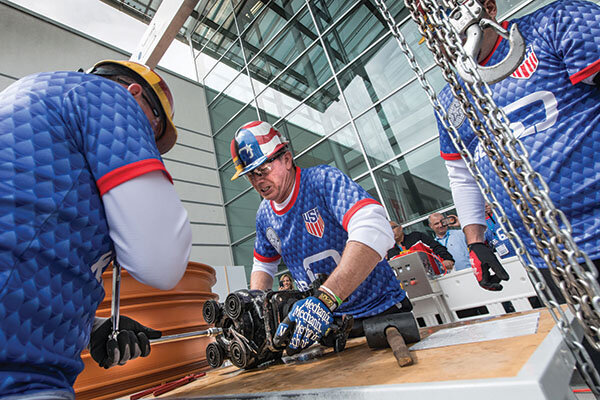
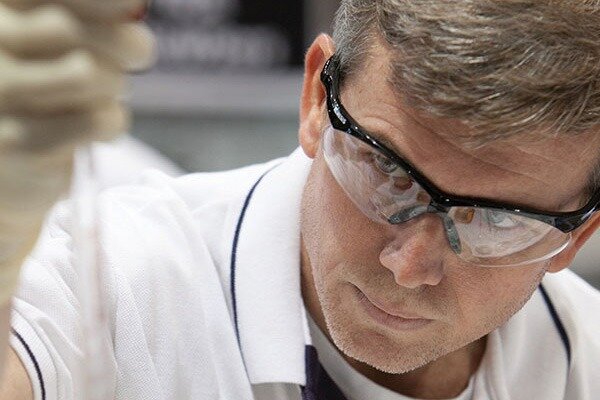
Dale Burrow, Wastewater Operations Professional
Interceptor System Specialist
Trinity River Authority, Dallas, TX
28 years of wastewater-treatment experience
23-year competitor in WEF Operations Challenges
Specialty: Process control, lab work
Dale Burrow grew up fishing and kayaking on the Trinity River, which has a metroplex of four wastewater-treatment facilities that pump 163-million gal. of water per day for the Dallas/Fort Worth area. He began working for the Trinity River Authority in 1988, and now is a Texas Class A Wastewater licensed operator and 23-year veteran of the TRA CReWSers Operations Challenge team.
“I always wanted to do something with water,” said WEF of Texas’ 2015 Outstanding Operator of the Year. He now performs industrial surveys and handles special investigations/projects for TRA’s pretreatment department.
Burrow’s competitive edge for Team USA is with the laboratory challenges and anything that involves process instrumentation.
“This is the type of stuff I do every day, so I’m comfortable with these challenges,” he said. However, at IFAT-Munich, this challenge involved equipment that they had never seen before in the U.S. “I couldn’t see the back side of it, so I had no idea what the control panel looked like. I basically had to learn it from watching a couple of the other teams run it.”
These challenges often mirror real-life scenarios, Burrow explained. “We can use what we learn during the competitions every day. For example, when I first started doing this, a lot of the equipment we used on the safety event was more advanced than what we had in the field. The practice using this equipment made us more efficient and ready for any upgrades. Also, for the maintenance pump event and lab events, with all the practice for the challenges we develop our skills and can take what we learn back to our field teams.”
As a collection-systems professional, Burrow said he works mainly in the field without much time inside the facility. “For a long time, I really didn’t understand how the plant operated,” he recalled. “But after working so much on these competitions, I was actually able to go in and take the different operators licenses and was able to pass Class A, the highest one in Texas. I completely credit that to the Operations Challenge, because that’s how I studied.”
With every competition, new skills are gleaned.
“There is always a team doing something different or has a better or faster way,” said Burrow. “This year, we had a challenge that involved mapping out a problem using magnetic cards on a board. I brought this back to TRA, and we are going to use this to help explain processes and map out scenarios to solve problems. Once you actually see it laid out, things start to click.”
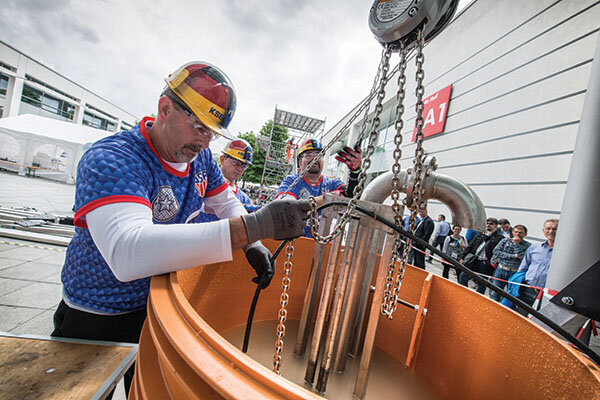
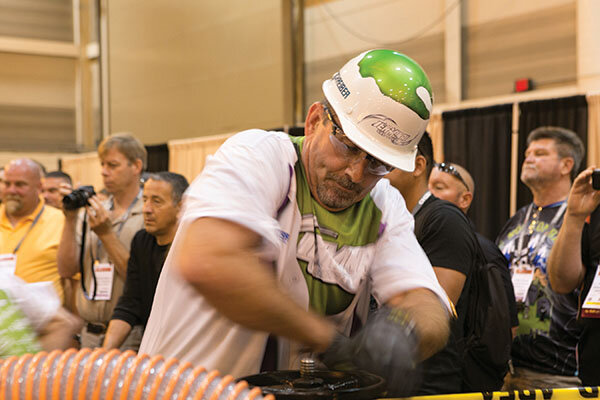
Donnie Cagle, Wastewater Operations Professional
Sales Rep, Electric Motor Shop
Owner, Bio-Logical Treatment Technologies, Chesapeake, VA
32 years of wastewater treatment experience
26-year competitor in WEF Operations Challenges
Specialty: Solids handling, dewatering, sewage-treatment maintenance
A self-taught welder, Donnie Cagle was rebuilding car engines when he was 12 years old. “I’ve always been sort of mechanically inclined,” he said. “My dad raced cars and built custom cars, so I was always around it. I would always take my bicycles apart, and I was always out in the garage helping my dad.”
This experience and mechanical aptitude paid off when, soon after high school, Cagle landed a job as a maintenance supervisor’s assistant at a wastewater-treatment plant. After two months, he was promoted to maintenance operator. Fifteen years later, he became a plant manager at a different municipal treatment facility.
In 1988, he was introduced to WEF’s first-ever Operations Challenge. The general manager of his company recognized the opportunities for growth, skill development, and leadership through the program and formed a team that included Cagle.
“I was always fortunate to be on good teams with great people,” Cagle said. “From a standpoint of teamwork and professional development, it was just a good fit for me. The first competition had 23 teams and now there are more than 40. Through the years, it’s gotten more competitive and more challenging.”
Cagle approaches each competition strategically. “I study the other teams and the rules of each challenge very closely. I try to look for advantages so our team is not a cookie cutter of someone else’s.”
Each challenge offers opportunity to learn new skills. “I have always been a gearhead and a wrench turner. For example, the laboratory and process-control events were something that I would not know anything about were it not for my Operations Challenge experience. I later went after licenses and successfully obtained them. But I probably wouldn’t have continued to pursue learning opportunities in wastewater treatment if I hadn’t had the ‘Ops Challenge’ to inspire me.”
At WEFTEC 2016, Cagle will be a judge for the Operations Challenge.
“I would much rather be a competitor,” he said. “Being on a team is a lot harder work all year long. Being a judge is a lot harder work on the day of the competition. I know as a judge and as a competitor how much these men and women put into practice, and competing, and building up for that moment. As a judge, I want to do everything I possibly can to make every team have the same opportunity as the team before. My goal is to make everything consistent. I would not want something that I did or did not do to affect the overall outcome because I know how much work they put into the competition all year long.”
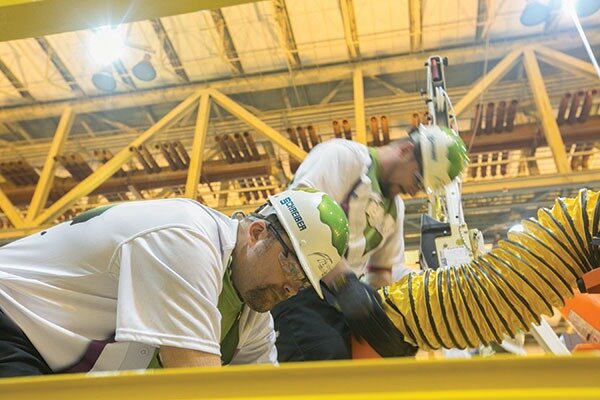
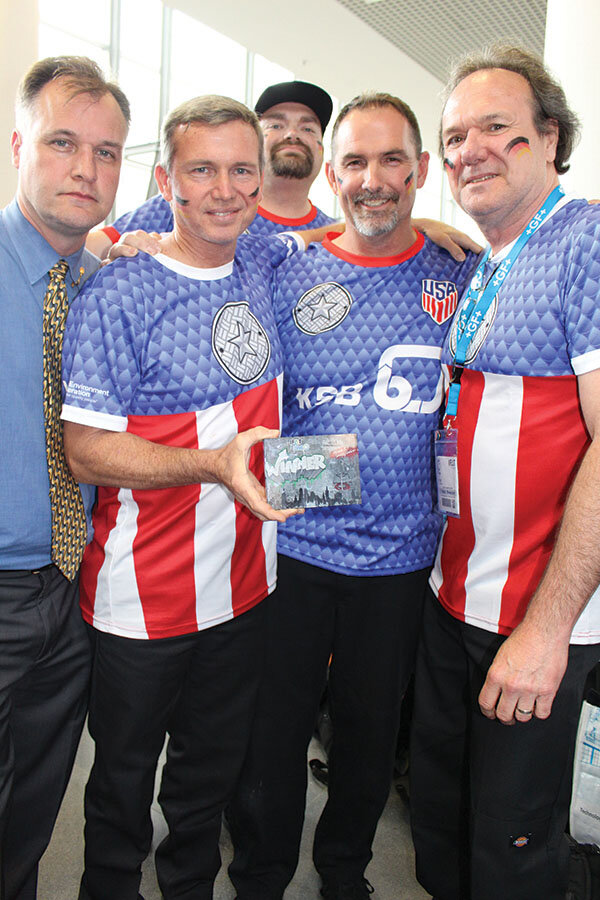
Steve Motley, Wastewater Operations Professional
Regulatory Compliance Manager
City of Virginia Beach Public Utilities, Virginia Beach, VA
17 years of wastewater treatment experience
12-year competitor in WEF Operations Challenges
Specialty: Sanitary-sewer investigations, operation and maintenance of sanitary-sewer collection systems
A graduate of Old Dominion Univ., Norfolk, VA, Steve Motley had a difficult time finding work as an engineer after college. He gained some experience in field work doing manhole inspection and smoke testing. After five years, he landed a job as a junior engineer for the City of Virginia Beach (VA) Ops Division and soon became the regulatory compliance manager. He began working on sewer investigations and solving problems. He was soon asked to join an Operations Challenge team.
“I am a competitive person, but when we moved up to Division I after only one year, I was concerned because we primarily do collection and not treatment,” Motley said. “But we got Donnie Cagle on our team, so we had that covered.”
Motley said he soon learned that competition was not the only benefit of the challenges.
“The competition is what drew me in, but that’s not really what it’s all about,” he recalled. “It’s more about building relationships, networking, and learning new skills. It helps you develop professional and leadership skills. I directly attribute my success today to my experience with the ‘Ops Challenge.’ It helped me develop confidence. And then other things happen naturally through the challenges, like teamwork and leadership—we use those skills every day.”
The networking is also a benefit, Motley added. “If I have a problem, I have a network of professionals I can call upon and ask them for their help. They can do the same in return. I think all of us have the ability to dissect something really quickly and make adjustments on the fly. This helps with trouble-shooting in the field. You don’t want to panic. Things don’t always go perfect on competition day, and that’s also true every day. You have to have the ability to act quickly and overcome that without causing a panic or getting flustered.”
As the challenges continue to reflect real-world scenarios, team members continue to develop their skill sets.
“Several of the challenges are things we do every day,” Motley said. “The safety event, for example, while I don’t rescue a coworker every day, we do use confined-space equipment every single day. We have to know how to remove and check flow meters. The pump event reflects how to hook up the pump stations during bypasses or emergency events.”
Motley’s team won the WEFTEC event five consecutive years from 2010 to 2014, so they retired from competition. Motley will help to judge and prepare some of the challenges this year. “I will still be heavily involved, just from the other side of the fence.”
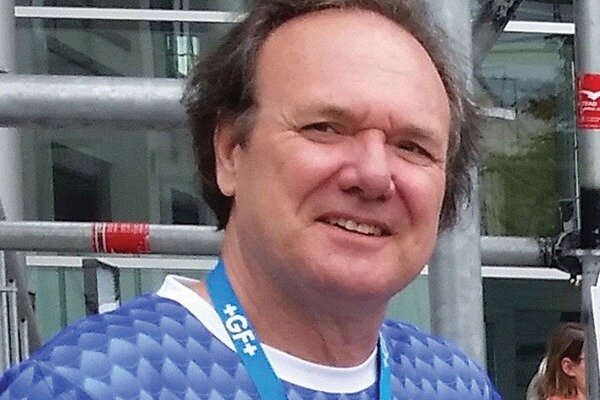
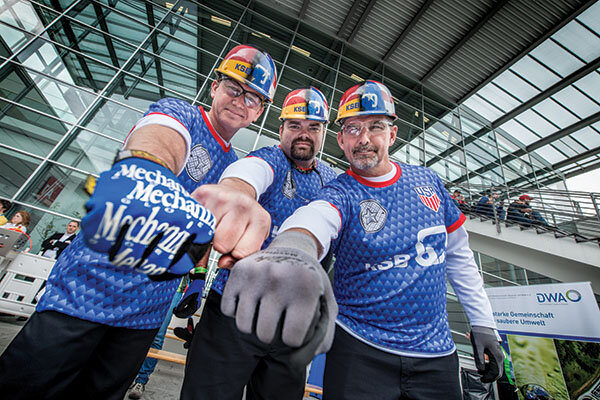
Dave Vogel, Coach, Wastewater Operations Professional
Sales Director
CH2M Hill, Operations Management Business Group, Chesapeake, VA
30 years of experience in water, wastewater, and environmental industries
28-year competitor in WEF Operations Challenges
Specialty: Wastewater treatment management, operations, maintenance, and laboratory experience on various activated-sludge processes
Dave Vogel has been involved with the WEF Operations Challenge since it began in 1988. He is often asked why he has participated for so long.
“Because it matters to all of us,” he easily explained. “Whether we, as the general public, acknowledge the work of our water professionals or not, the forum makes good technicians better and their improved work skills benefit the world. In 1988, and in the 14 years of my time in this career ahead of that, I knew most of society had virtually no recognition of what a ‘sewer worker’ did, nor did they much care (think about Norton, played by Art Carney, in Jackie Gleason’s ‘The Honeymooners’). I saw a unique opportunity for us to demonstrate, showcase, and ‘professionalize’ the role of the unsung water-professional heroes who protect our valuable water assets every day, 24 hours a day, 7 days a week.”
In his 28 years of involvement, Vogel has seen many changes. “I’ve seen this honorable forum change the lives of our operators—in teamwork, confidence, pride, and respect, not to mention personal job growth.”
His initial involvement came through his work as chief operator for the City of Tampa Florida’s 96 MGD advanced wastewater-treatment plant. He was approached by the plant manager in 1988 about participating in this new idea of demonstrating and showcasing the work wastewater operators do in their daily work schedule, in a nationwide competitive event.
The City of Tampa team competed in state competitions for three years and, in each case, won the right to represent Florida in WEF’s national competition. “I was hooked,” he said.
Throughout the following years, Vogel remained involved with the Operations Challenge, continuing to coach at state and national events, volunteering as an event judge, and performing scoring-assistant functions. For the past 15 years, he has been the official scorekeeper for the National WEFTEC event.
“I’ve watched over the years how men and women come together in camaraderie, mutual support, and yes, while this is a competitive event, cheer each other on as if it did not matter who wins. We all win,” he said.
“I was honored and humbled to be asked to coach Team USA-KSB, working with the best of the best, and representing the USA for the very first time in an international competition, in Munich, Germany. And guess what I found? The same mutual respect, camaraderie, and support from teams and individuals from around the world. No one expected the USA to win the gold, but it was obviously an awesome experience, particularly when our competitors rejoiced in our accomplishments. It was truly a life-changing experience.”
Michelle Segrest is President of Navigate Content, Inc., a full-service content creation firm. She has been a journalist for more than three decades and specializes in covering the people and processes that make a difference in the industrial processing industries. Contact her at michelle@navigatecontent.com
If you like this article about the Wastewater Operations Challenge, please PIN IT!
Original version published in Maintenance Technology, August 2016. Updated August 2020.
